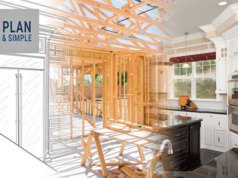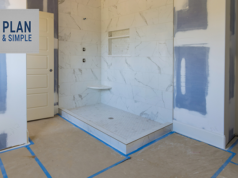
Most maintenance is pretty basic – but some of it can be deceptively dangerous. Here are 8 rules to help you maintain your home without ending up in hospital.

Most maintenance is pretty simple – you do some basic cleaning once a week, tighten a screw here and there when necessary, change a lightbulb occasionally or check the battery in your smoke alarm once every six months.
None of these things pose any real threat to life and limb, but it’s important to know when to draw the line, swallow your sense of DIY pride and call a qualified tradie in.
Professional tradesmen aren’t always cheap, but they’re paid well for a couple of very good reasons: not only are they trained to ensure that whatever they’re fixing is properly and completely repaired to the standards required by law, but they’re also trained on the sorts of hazards involved with the work they do.
To spell it out, this includes avoiding things like getting burned, crushed, impaled, mutilated, drowned or electrocuted.
Below are some tips that’ll help you to decide what is and isn’t safe:
1. Lighting and electrics – as a rule of thumb, about the most maintenance you should ever attempt yourself on electrical gear is superficial cleaning, changing lightbulbs, cleaning the filter in your air conditioner and switching things on and off at the switchbox. Anything else requires a licensed electrician, who should provide an Electrical Safety Certificate guaranteeing the work that’s been done has been properly tested.
2. Don’t change your own plugs – Yes, you can buy spare Australian plugs for your appliances at the local hardware store for a couple of bucks. No, you’re not supposed to change them yourself. Even if you’ve done it right, any fault, damage or catastrophic fire that occurs thereafter will not be covered by your insurance. Plugs must be changed by an electrical contractor who’s specifically trained to do so.
3. Don’t fiddle with your plumbing – Technically you’re allowed to change your own taps, but if you don’t know what you’re doing even that’s not a good idea. As well as risking flooding your house (and missing out on an insurance claim), you also risk releasing gruesome-smelling and highly toxic sewer gases into your home. By law, any plumbing connected to the mains infrastructure must be dealt with by a licensed plumber.
4. Leave gas to the pros – Anything to do with gas – be it bottled gas, gas supplied directly through the gas mains, or a gas heater or cooker – needs to be regularly maintained and repaired by a licensed gasfitter. At the first sign of a leak or malfunction you should immediately turn off your gas (if you’re able to safely do so) and contact the relevant authority in your state or territory.
5. Don’t climb on the roof – That sense of vertigo and the rush of blood you get when you’re up high? Pay attention – that’s your body’s way of saying ‘HAHA I PREFER TO BE ON THE GROUND’. A fall from your roof, even if it is only a couple of metres up, could very easily cause a spinal injury or death. Most tradespeople are trained to work at heights, and won’t do so unless the proper safety measures are in place (roof anchors and so forth).
6. Use tools and ladders properly – If you’re using power tools, don’t be careless. Always follow the manufacturers’ safety instructions to the letter; there’s nothing more horrifying than a power tool accident. Same goes with ladders – use the right ladder for the right purpose, never use a broken ladder, and always carefully follow the manufacturer’s safety instructions.
7. Be careful with chemicals and cleaning agents – These days, all types of cleaning products are available in supermarkets, in pretty coloured bottles with grinning cartoon characters and dazzling logos on them. These marketing tools can easily give you a false sense of comfort, and disguise the fact that the contents are normally pretty dangerous. Always read the safety advice on cleaning products very carefully – if it says well ventilated, it means well ventilated. If it says to use gloves, then that’s absolutely what you should do.
8. Clean up after yourself –Got a bucket of bleach lying around? Working with a drill, nails or a saw? If you’re going off for lunch, make sure anything that might pose even a remote risk to someone who’s not paying attention is put well out of harm’s way. It only takes a second!
Home maintenance is generally a walk in the park, but as a rule of thumb anything to do with gas, electricity, plumbing, working at heights or on structural parts of your home is almost always better left to the experts.
It’ll cost you to hire a qualified tradie, but you’re paying as much for peace of mind as you are for quality workmanship. Your money’s always better spent on basic maintenance than it is on hospital bills or major repairs further down the track.





